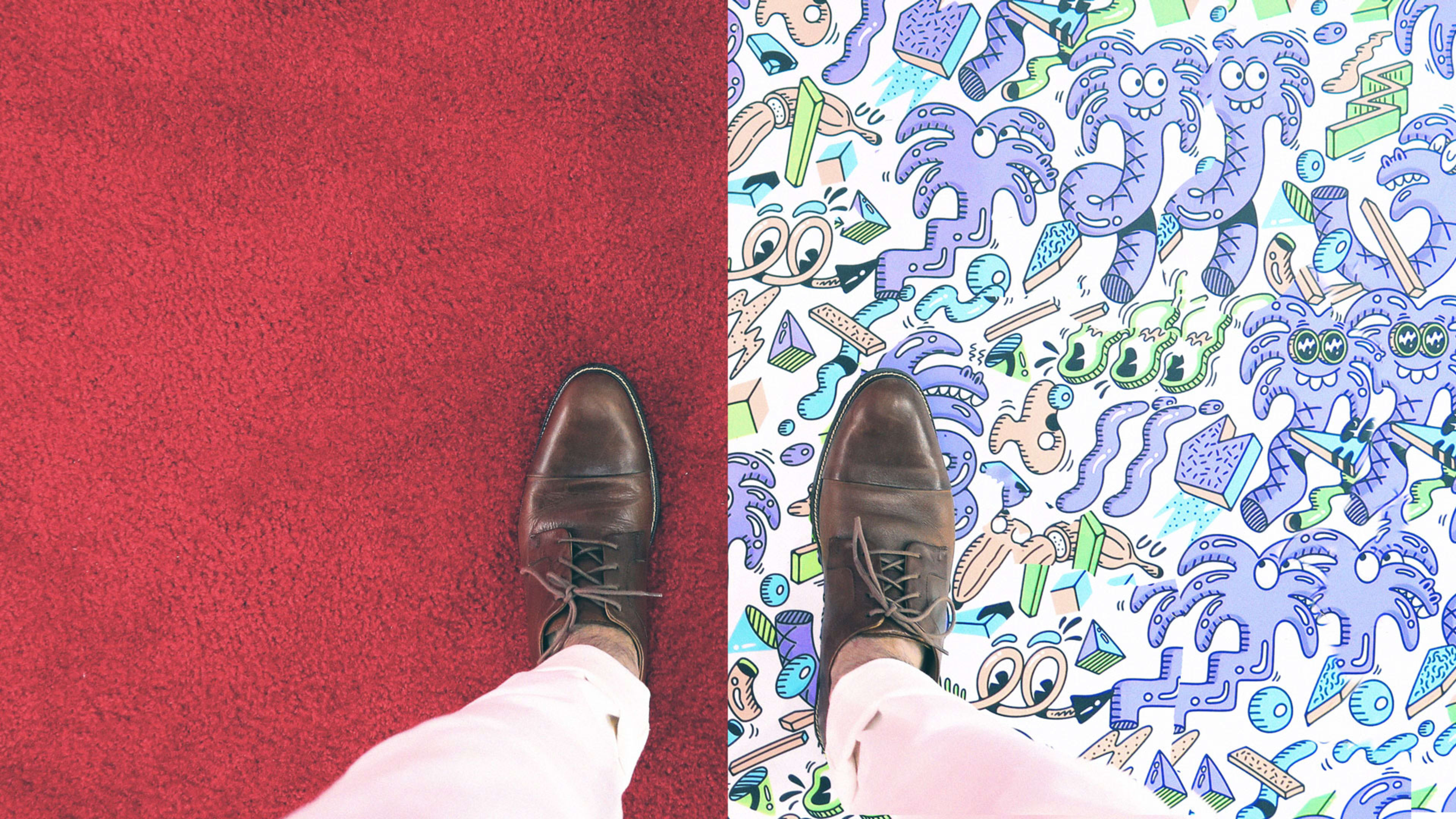I just got back from my honeymoon in New Zealand. The highlight? Hiking the real-life Mount Doom and giving my wife a replica of the one ring to rule them all. (She’s a diehard Lord of the Rings fan.) The funny thing is, I didn’t buy the ring for her–one of my employees did.
According to conventional wisdom, making friends with your employees is considered a risky–if not disastrous–leadership strategy. But in my experience, getting real with my team, and even becoming friends, has had a far more nuanced and positive effect on the company. The fact that people know about my wife’s obsession with Middle Earth or my love for dorky-looking folding bicycles isn’t just okay; it turns out to be central to our success.
Split personalities come at a cost
Studies show that 75% of people hide at least some part of their personal lives at work. And yet, hiding who we are can have major consequences–especially considering we spend a third of our lives on the job. Tamping down your true self at work is bad for your health, creates social anxiety, and contributes to major problems like depression and detachment. But more than that, it’s bad for the bottom line.
For instance, pulling the “boss card” and barking orders may be an easy way to get people to do what you want. But it also breeds resentment, and ultimately, higher turnover. There’s a hard line between respect and fear–and only one leads to real trust. I’ve found that far from undermining your authority, being a real person with your team creates an environment of mutual respect where they follow your lead because they want to, not because they have to.
That’s critical because we’ve come a long way from the “put up and shut up” mentality of my parents’ days, when having any job was enough. Today, people crave a work environment that reflects their passion and values–and allows them to express who they really are. As an e-commerce agency, we’re competing for tech talent in an extremely tight labor market. Yet our employee retention rate is over 90%–something I credit, at least in part, to creating a workplace where people don’t have to leave their personalities at the door.
But what’s more, allowing people to be their true selves at work helps you get the most out of your team. I think of one employee who started out as a struggling developer but became a kickass business analyst. In his first role, he was stuck behind a desk with minimal interaction with other people. But as we became friends, I realized he was an upbeat and extremely outgoing guy. He wasn’t failing because he was bad at his job–he was in the wrong job. Eventually, we were able to move him into a public-facing role perfect for his exuberant personality. Not only has he excelled, he’s helped us build a new department that’s flourishing under his lead.
Being authentic pays off–but it also takes work
Of course, being your true self at work doesn’t mean airing your dirty laundry in the office, or holding people hostage to your political views. Professionalism has to underscore everything you do–but it’s important to define what “professional” means. It doesn’t mean roping off topics as too taboo for work; it’s about learning how to read people and making a judgment call about who you can share personal stuff with–and learning how to do it in a respectful way.
It’s important to note: not everyone comes in knowing how to do this. Sometimes this kind of social intelligence has to be taught, and as a leader it’s up to you put that effort in. Of course, it’s easier to model this behavior to your team when you’re smaller and interacting more frequently one-on-one. As we’ve grown, however, I’ve found bringing in some expert support has really helped equip our entire team with the skills to navigate personality differences–and express them–in a healthy way.
A couple years ago, I hired a values coach to help take our realness game to a new level. Through personality tests and open conversations, we dove deep into what makes each of us tick. It was a gamechanger: We broke down walls, got better at resolving conflict and learned how to be more empathetic to one another. Bringing in an expert created a safe space for people to express who they are, and make genuine connections with each other.
Lead by example
Still, it can be hard to open up, especially about deeply personal issues. So the onus is on employers to not only encourage authenticity–but to demonstrate it. A good friend of mine recently had gender reassignment surgery, which many people might consider to be a minefield to address at work. But she’s been completely open about it, and even sent a letter to her employer about what she’s going through. She sent it to me, too, and I’ll be sharing it with my team so they’ll have an example they can look to if they ever need to share their own sensitive news.
I know this sounds like the most millennial way of running a company ever. And honestly, this way of thinking probably is a generational thing. But I think people have always felt constrained by the expectation to tone down their true selves at work. We’re only now at the point where people expect to be able to be themselves, without being judged or reprimanded. If I can create that kind of space for my employees, I’ll consider it a job well done.
Benjamin Crudo (@BENGMN) is the founder and CEO of Diff, a full-service e-commerce agency based in Montreal.
Recognize your company's culture of innovation by applying to this year's Best Workplaces for Innovators Awards before the extended deadline, April 12.
